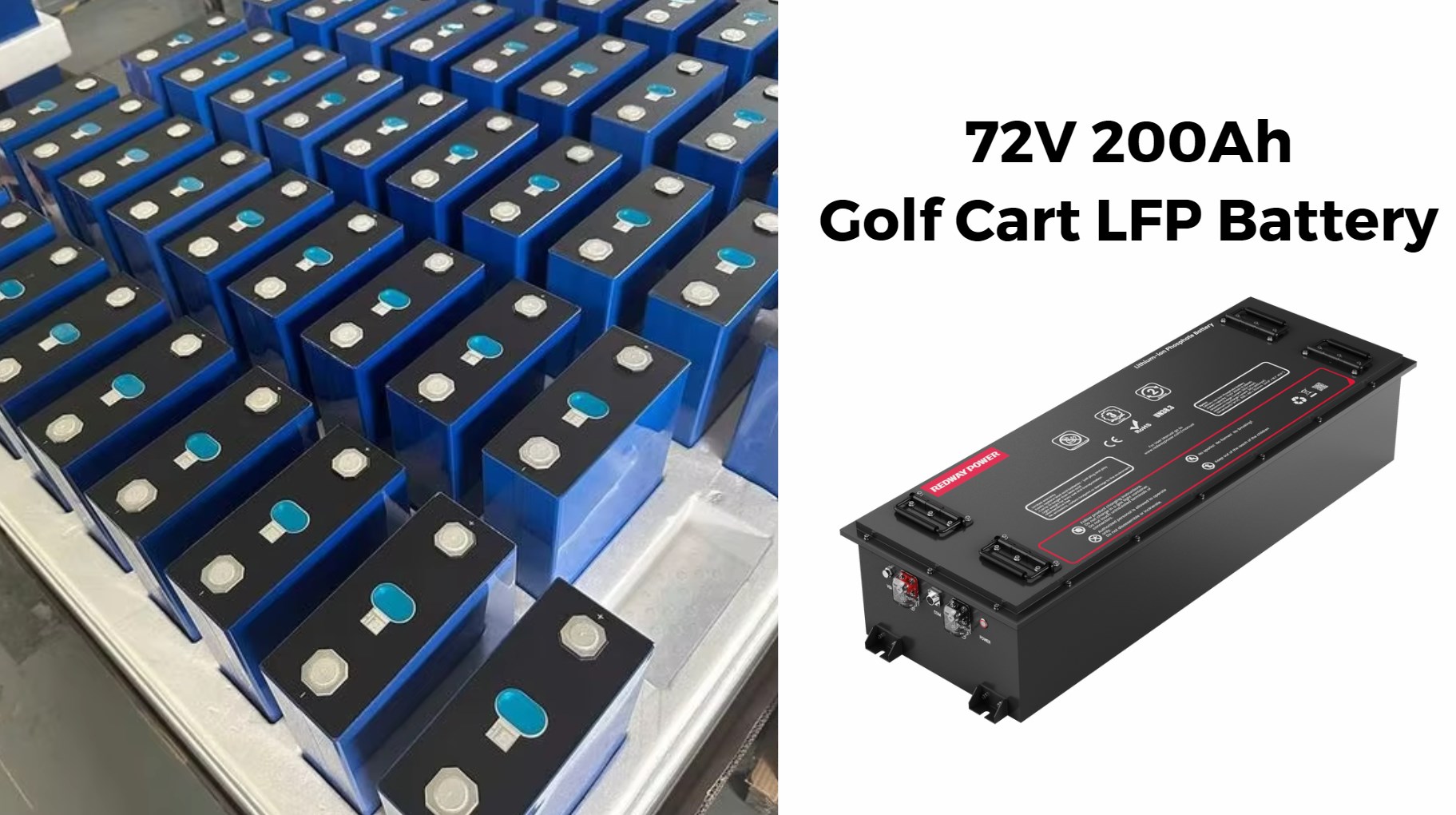When considering a 72V 200Ah lithium golf cart battery, it’s crucial to understand the configuration and number of individual batteries required to achieve the desired voltage and capacity. This comprehensive guide will delve into the specifics of how many batteries are needed, focusing on the configuration, performance, and considerations for optimal use.
A 72V 200Ah lithium golf cart battery requires multiple individual lithium batteries connected in series to achieve the desired voltage. The number of batteries needed depends on the voltage rating of each individual battery. For example, if each battery has a voltage rating of 3.6V, then you would need 20 batteries connected in series to achieve a total voltage of 72V. It is important to ensure that the batteries are properly connected and that the overall capacity meets the desired 200Ah rating for optimal performance and longevity of the golf cart battery.
To create a 72V 200Ah lithium golf cart battery system
Understanding Voltage and Capacity
A 72V 200Ah lithium battery is designed to deliver significant power and efficiency, often used in electric vehicles, golf carts, and other high-demand applications. To construct such a battery pack, one must assemble multiple lithium batteries to achieve the total voltage and capacity.
Battery Voltage Ratings
Lithium batteries come with different voltage ratings, commonly 3.2V, 3.6V, or 3.7V per cell. To build a 72V battery pack, the number of batteries connected in series must collectively add up to 72V.
Calculating the Number of Batteries
For instance, if each individual lithium battery has a 3.6V rating, you would need:
Number of batteries in series=72V/3.6V=20 batteries
Thus, 20 batteries are required in series to achieve a 72V configuration.
Achieving the Desired Capacity
The 200Ah capacity needs to be met by ensuring that the batteries used in parallel can deliver the required amp-hour rating. If each battery has a capacity of 100Ah, you would need:
Number of parallel strings=200Ah/100Ah=2 parallel strings
So, if each string consists of 20 batteries in series, you will need a total of:
20 (series) ×2 (parallel) =40 batteries
Configuration for Optimal Performance
Proper battery management is essential for ensuring the longevity and efficiency of a 72V 200Ah battery pack. The configuration should involve:
- Series Connections: To achieve the 72V, batteries are connected in series.
- Parallel Connections: To meet the 200Ah capacity, strings of batteries are connected in parallel.
Importance of Battery Management Systems (BMS)
A Battery Management System (BMS) is critical in managing the performance and safety of a lithium battery pack. It ensures:
- Cell Balancing: Equal charge distribution among cells.
- Overcharge/Overdischarge Protection: Prevents damage from excessive charge or discharge.
- Thermal Management: Monitors and manages battery temperature.
Advanced Features and Upgrades
Modern 72V 200Ah lithium batteries often come with additional features:
- Self-Heating: Allows the battery to perform optimally in cold temperatures.
- Fast Charging: Reduces downtime by enabling quicker recharging.
- Enhanced Durability: With an IP67 rating, these batteries are protected against dust and water ingress, making them suitable for various environmental conditions.
Applications and Benefits
The 72V 200Ah lithium battery is versatile, finding applications in:
- Electric Golf Carts: Providing reliable power and extended range.
- Industrial Machinery: Delivering consistent performance in demanding environments.
- Renewable Energy Systems: Storing solar or wind energy efficiently.
Advantages of Lithium Technology
Compared to traditional lead-acid batteries, lithium batteries offer several benefits:
- Longer Cycle Life: Lithium batteries can endure more charge and discharge cycles.
- Higher Energy Density: They provide more power and energy per unit volume or weight.
- Faster Charging Times: Lithium batteries charge more quickly, reducing downtime.
Considerations for Purchasing and Installation
When selecting a 72V 200Ah lithium battery, consider:
- Compatibility: Ensure the battery is compatible with your golf cart or other applications.
- Quality and Brand: Opt for reputable brands that offer reliable performance and warranty support.
- Installation: Proper installation is crucial for safety and efficiency. Consider professional installation services if necessary.
Maintaining Your Lithium Battery Pack
Regular maintenance helps extend the lifespan of your battery pack:
- Regular Inspections: Check for any signs of wear or damage.
- Clean Connections: Ensure terminals are free from corrosion and dirt.
- Monitor Performance: Use the BMS to keep track of battery health and performance.
Conclusion
In summary, to assemble a 72V 200Ah lithium golf cart battery, you need approximately 40 individual batteries, with 20 batteries connected in series for the voltage and 2 parallel strings to meet the capacity requirements. Understanding the configuration and maintenance of these batteries is essential for ensuring optimal performance and longevity.
For those in need of high-performance battery solutions, whether for wholesale, B2B, or OEM purposes, our team is ready to provide detailed information, pricing, and support tailored to your needs. Contact us to discover how our 72V 200Ah Lithium Iron Phosphate battery can meet your specific requirements.



